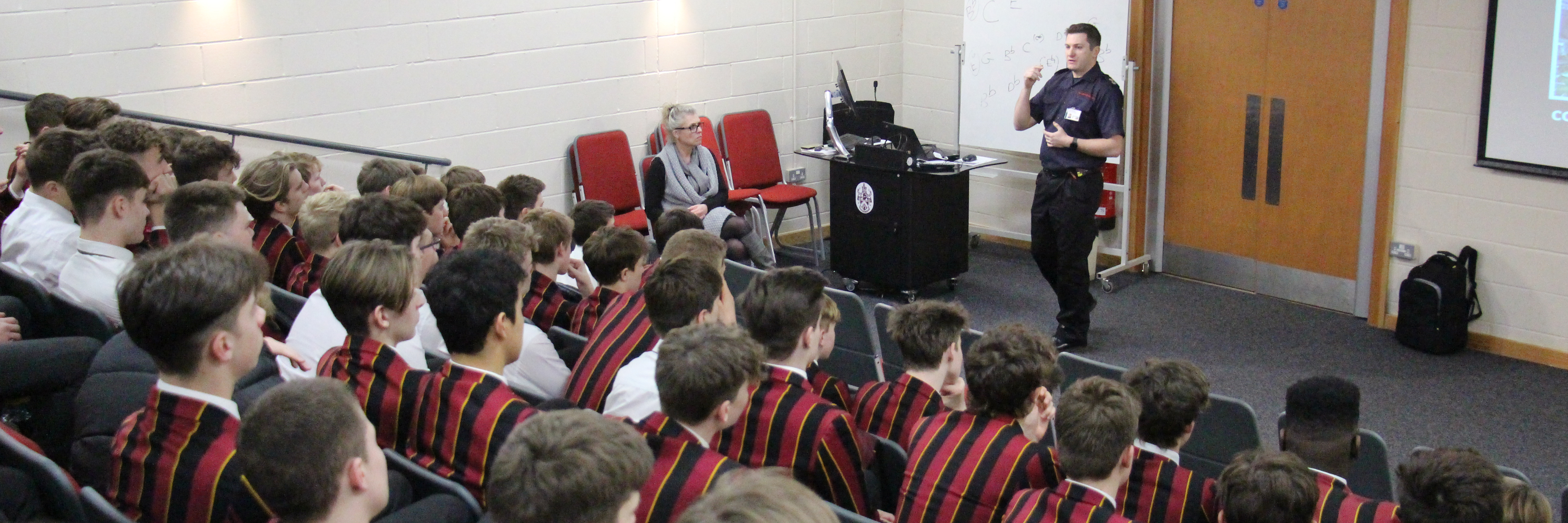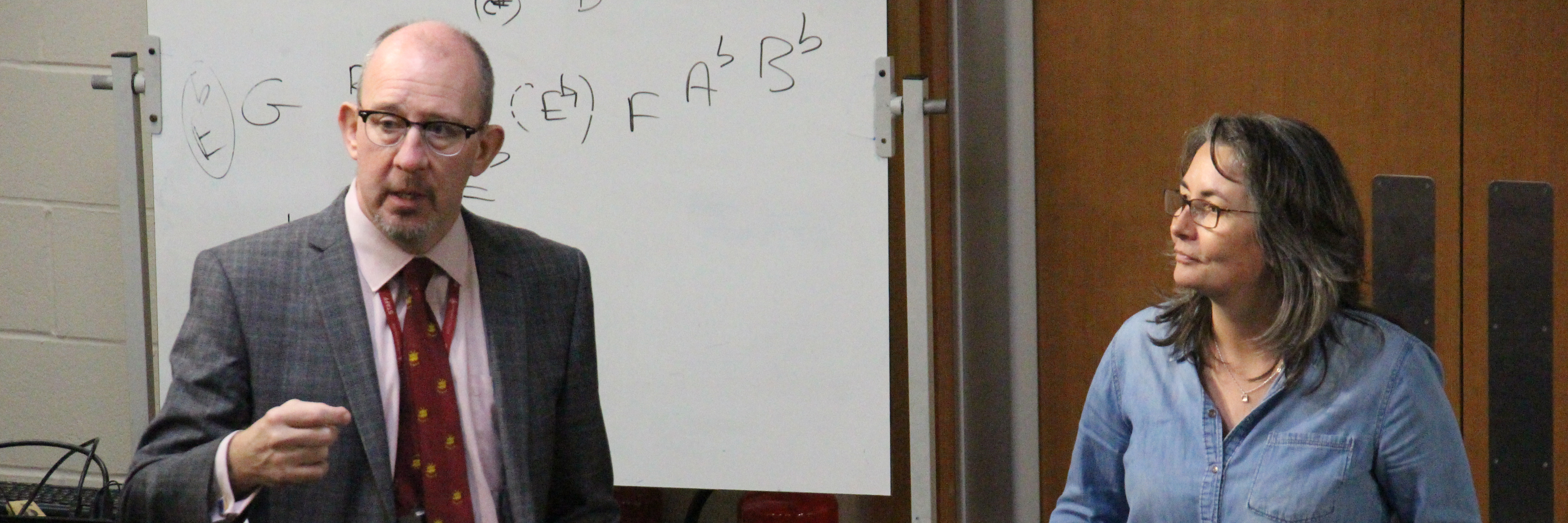Last Friday, Shiplake was visited by of two emergency service workers to highlight the dangers faced by the community. The first of these talks was given by Nick Winter of the Henley and Watlington Fire Service. Given his experience, he told some harrowing stories of the dangers of driving irresponsibly. The second of the College's guests was Teresa Hughes, an ex-police detective who worked in Online Paedophile Investigations. She was addressing local parents on the importance of staying safe online and what can be done to protect our children online.
Drive Safe
On Friday 26 January, Emergency Response Officer Nick Winter visited Shiplake College to explain the importance of driving safely in a hard-hitting presentation.
Last Friday, Nick Winter spoke to the Year 11 pupils about the choices that are made when we choose to drive. Among these were the decisions to drink or take drugs before driving. Mr Winter told the harrowing story of three people in the Abingdon area who had driven to the pub and had several alcoholic drinks. Nick spoke about the choices they could have made to walk home, get a taxi, organise a lift or for one of them to be the designated driver. Unfortunately, the three people were involved in a fatal car crash in which they all died. The worst thing about this instance, Nick told, was that they all lived within a mile radius of the pub.
Nick also spoke about the speed we travel when we drive. He initially mentioned ‘speeding’ but retracted the ‘ing’ as he explained that a driver doesn’t need to break the speed limit to be driving too fast. Instead, he focussed on what is appropriate for the weather, the road and visibility to name a few. Another decision that drivers make is whether or not to wear a seatbelt. In 1985, it was made law to wear a seatbelt if one is provided, as they were not made a legal requirement until 1989 when it became law to issue all cars with seatbelts. A video was shown which illustrated the role played by the seatbelt, and also showed what can happen when a driver crashes when they aren’t wearing one. Needless to say, I don’t think any of our pupils will be making these mistakes now!

Online Safety
As Nick Winter left, Teresa Hughes arrived to talk to local parents how to keep themselves and their families safe online and the dangers of the internet.
Teresa Hughes is a former police detective who worked in the Online Paedophile Investigation Team. This background gives her a unique insight into the challenges posed by online grooming, cyberbullying and other issues relating to social media. She has worked with many schools and universities and is currently an Honorary Lecturer at the University of Kent and trainer with the Independent Schools' Inspectorate.
Teresa began by talking about, perhaps most basically, what is on the internet. The biggest issue is that most of the internet is unregulated and uncensored, which means children as young as four or five can access material intended for adults. This sort of material can be accessed on popular social media websites like Facebook and Twitter and can even be found on YouTube, which many consider to be safe. Even games like Minecraft can be dangerous, as children are in communication with people who may be significantly older or more dangerous.
Of course, Teresa explained, there are safety precautions that can be taken such as firewalls and age restrictions that prevent access to such material. Language however, is very difficult to regulate or control, so the importance lies in being open with one’s children and ensuring that, as a parent, you are educating your children what is right and what is wrong.
One example Teresa gave was of online grooming. In the example, she outlined that young people often feel trapped in those situations in which an adult is talking to them or asking to do things, but the child does not want to appear rude. The importance here is to make children aware of what they can or should do when they feel uncomfortable in these situations. One main point that was made was that when most of us are children, we are encouraged by our parents not to speak to strangers. The difference today is that certain websites actively encourage children to talk to strangers online.
The advice from Teresa was to try these things out for yourself, to get an understanding of what sort of things your children could come across online. It is also important to teach your children how to stay safe online and that they can and should talk to you as their parent or guardian about what they see or hear online.





















